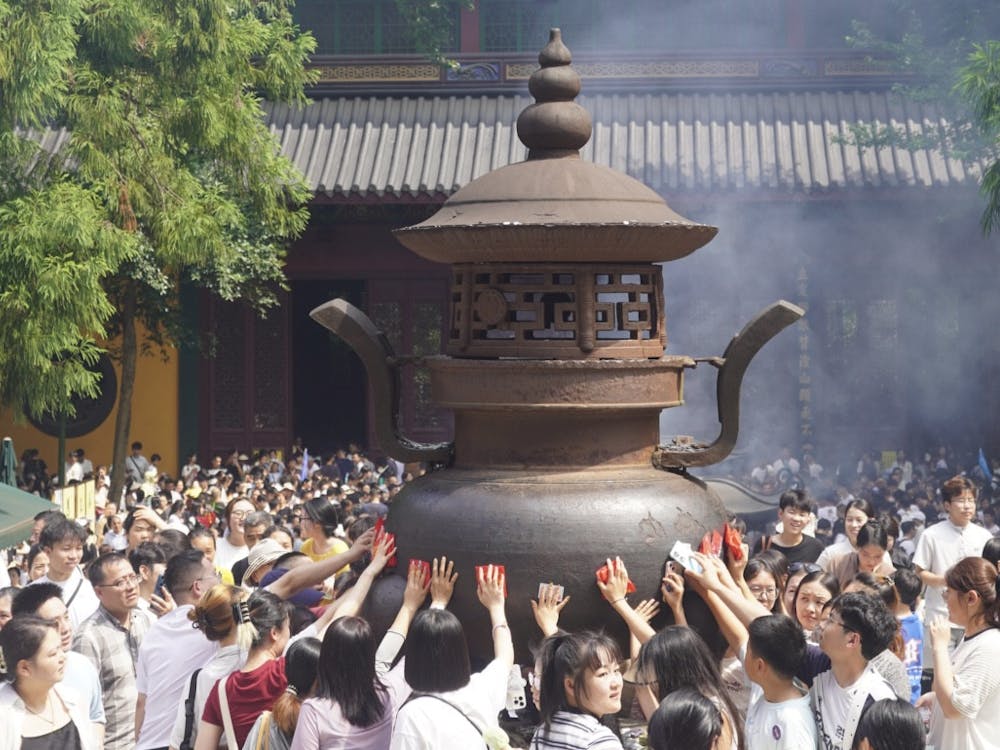While I usually use this column to ramble about something related to music, I decided this time to talk about the new policies the administration has put in place concerning events that students groups organize. With the controversial moratorium on Greek life-related events taking the spotlight, these new, relatively unnoticed policies affect all student groups, not just fraternities and sororities.
As the station manager of WJHU, the student-run radio station, I’ve had a good amount of firsthand experience with the financial procedures of the Office of Student Activities (OSA) when it comes to planning events, organizing group travel or simply getting reimbursed. The bureaucracy in place was not perfect; there were definitely plenty of things, especially with all the forms that needed to be filled, that could have been streamlined, and the processes themselves, like receiving and sending checks, were lethargic at best.
However, at the end of the day, the school gives each of the groups the opportunity to fulfill their goals by providing them with a budget, so if one wants to get something done with their student group, one would learn how to work with the system.
Not to disparage it entirely, but I have learned a lot about event coordination and developing business contacts based on my experiences with the OSA’s financial system. While not the most exciting experience (nerve-wracking and stressful are better descriptors), I realized the determination and level of organization required to successfully arrange any student group event.
However, the administration has decided to make things more difficult: As of Sept. 24 (or Oct. 17, depending on which document you look at), the Hopkins administration has implemented new late night event procedures that student groups must follow when organizing an event that either ends after 9 p.m. and/or is advertised off-campus.
What does it entail? Firstly, this document leaves a lot of unanswered questions in terms of off-campus events, with the administration subtly implying that every student group is planning to run events in the Glass Pavilion. If a student group wants to arrange any function, they would need to let the school know 15 business days in advance and fill out an online space reservation form. Once that is done, they will need to schedule a meeting with a staff member of the Levering Student Life office 10 business days before the event. At this meeting, they will need to ensure that all the contracts or agreements that are related to the occasion will all be reviewed and signed by at least 10 business days prior to the event. They will also need to show that they have made the appropriate security requests, which need to be done 10 business days prior to the event.
All costs related to security, which includes Hopkins security and Baltimore City Police, are to be paid for by the student group. All event tickets will be done through JHU tickets, with the ticket limit set by the Levering Student Life staff. If tickets have not been sold out by the time of the event, the student group can sell the tickets on-site using JHU tickets or JCash. All advertising must be approved by Levering Student Life at least 10 business days before the event.
No cash can be accepted on-site for any reason, and a student organization advisor or full-time JHU staff must be in attendance for the entire event.
What the administration has shown is that they not only want to know what events are happening with every student group, but they also want to be involved with every aspect of the event. It was already hard enough to balance schoolwork at Hopkins with student group activities, but now, all of this additional overhead just exasperates things.
What motivation is there to run anything now considering these new procedures that don’t seem to be flexible or efficient? Why do student groups have to pay for JHU security at events? Why can’t they just have Hopkins security alerted of what is happening on campus and have whoever is on duty be aware of it? If it is off-campus, why does a group need to pay for security at the event, which is at a third-party property that already has security?
Also, things do not always go according to plan, especially when communicating with third-party vendors, and one can never guarantee that they can get all contracts and paperwork reviewed and signed a week and a half before an event. So will a whole event be cancelled if one administrative detail is slightly off within that week-and-a-half window?
This is the tip of the iceberg of questions that pertain to these new procedures. Why were the students or student groups not consulted in any way about this? I don’t think the groups would be against working with the school to appease demands and concerns on both sides.
While I respect the school’s responsibility to ensure the safety and security of all participants at Hopkins student events, this just removes any autonomy student groups had before. This is just a reactionary PR move that will not help solve the legitimate problems that Hopkins, as well as many other schools, face today.




